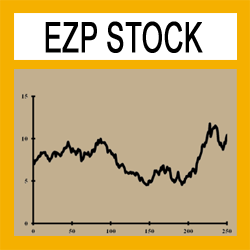
New on SimTrade?
Register for free and join the SimTrade community.
By connecting to this website you accept Terms of use.
 Practice market making in a market with trends
Practice market making in a market with trends
In this simulation you will discover the market making activity. As a market maker, you will participate to the market for EasyPlane stocks (ticker symbol: EZP). Your goal is to maximize your trading gain. At the start of the simulation, you own an account worth €20,000 in cash. In this simulation, you can buy or sell stocks on credit in order to take larger positions than in the spot position. To compute your available hedge to buy and sell stocks on credit, cash benefits from a leverage rate of 5 and stocks from a leverage rate of 2.5. Financial leverage effect (use of credit) amplifies the variations of market prices on your position (the increase in risk comes along with the desired increase in expected return). Note that in case of exceeding of your available hedge following an adverse evolution of the stock price, your position will be automatically cut by the market system. The duration of the simulation is initially set to 10 minutes, which corresponds to a 24-hour day. Using the TimeLine, you can increase or decrease the simulation speed at any time. You can relaunch the simulation as many times as you wish. |
Your grade for this simulation (100 points) takes into account the following elements:
If you launch the simulation several times, the simulation grade retained is the best grade you obtained on all the simulations (grade which takes into account your trading performance, your trading activity and your MCQ test for each simulation). |
EasyPlane is a low-cost airline company. Founded at the beginning of 2010, EasyPlane mainly serves big European capitals with some flights towards the United States and Asia as well. As its name suggests, EasyPlane’s goal was to make it easy for passengers to take a flight. For this, EasyPlane uses new technologies to automate all the process: from ticket purchase (website and mobile app) via boarding (triple recognition of the person based on fingerprints, face and voice, visual and sensory scanning of the luggage) up until the actual flight (online ordering of drinks or meals and service provided by robots). Even the airplane is piloted remotely with an expert system helping the only pilot in the cabin. For the firm, this innovative approach allowed to have much lower operating costs compared to those faced by the competitors still improving passengers’ safety. This approach attracted the Z generation formed by young people who were born in the era of new technologies, always connected and who do not have the time to lose their time. |
 |
The ticker symbol of EasyPlane is EZP. Privately held for a long time and very well valued by the funds that believed in this project from the beginning, the unicorn EasyPlane publicly entered the market only two years ago. The stock price took off phenomenally right after the quotation: started off with a price equal to €45, some months afterwards the stock price got already multiplied by 5! In order to make the price more attractive for the investors, recently the firm had to divide by 20 the value of its stocks (stock split). EasyPlane is followed by around 15 financial analysts. In particular, market participants are very much looking forward to the recommendations coming from Marina Boat and Douglas Flint, and their recommendations (not always concordant) often have a significant impact on the price of EZP stocks. Since several weeks, the stock price of EZP has experienced some ups and downs, and ranges around €10. |
 |
Today, the stock price of EasyPlane should evolve according to the information flow arriving to the market (news flow) and to the demand for the stock. We will follow with great interest the General Assembly of EasyPlane, which will start off at midday. The President of EasyPlane, Jane Brown, will announce the yearly company results and should give details about the strategic plan. As always, we will also be attentive to the recommendations of the financial analysts (buy, hold or sell) with their target prices. The recommendations given by some analysts are very much followed by the market. |
The simulation Market maker - Uncertainty allows to discover the conditions of the market making activity as well as its relevance for the market. Teaching objectives: The simulation Market maker - Uncertainty will be the opportunity to understand the factors of the market making. In which market conditions is market making profitable? What is the social utility of market making? What are the risks associated to market making? Learning goals: this simulation will allow you to understand in practice the following features of trading:
After or during this simulation, you can learn more on market making by following the associated courses to this simulation. Download the case note to help you during the simulation. |
 |
Professor François Longin « Market making activity improves market liquidity. This is beneficial to all market participants. » |